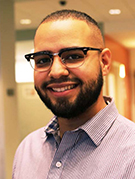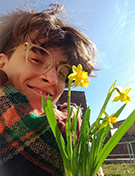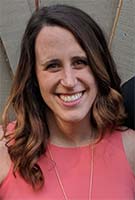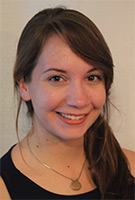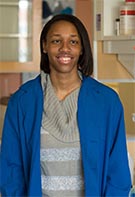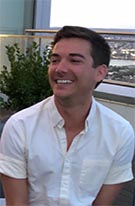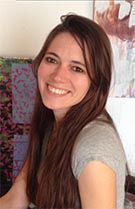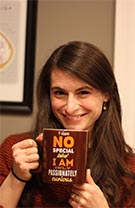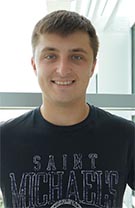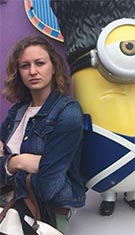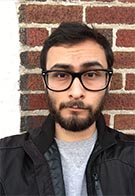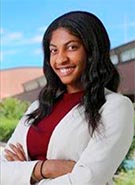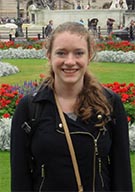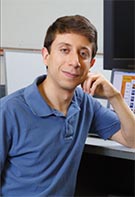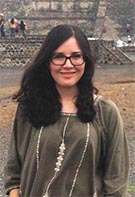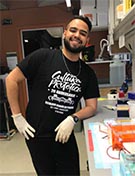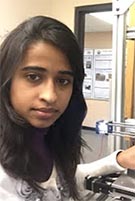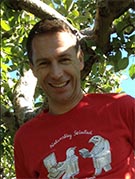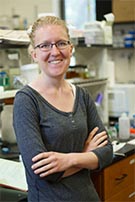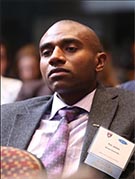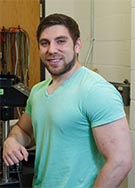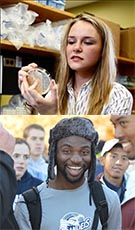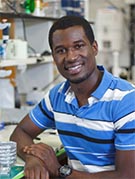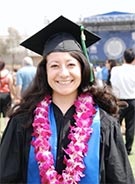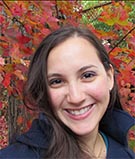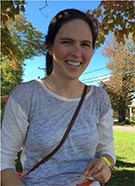K-12 Educational Outreach
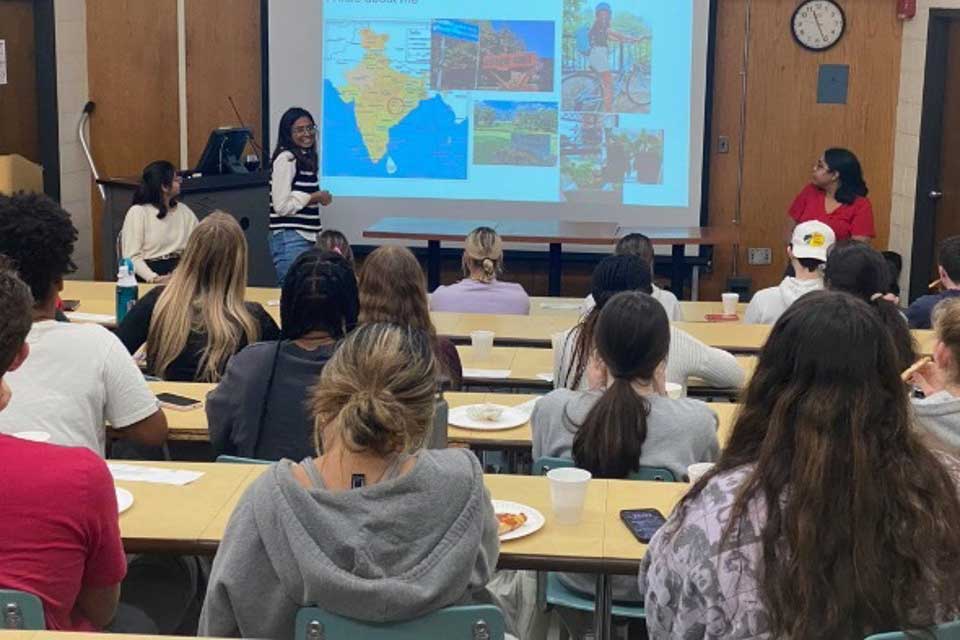
Brandeis MRSEC and WHS present: Science Pizza Talks
Once a month, Brandeis scientists from diverse backgrounds travel to Waltham High School for "Science Pizza Talks" to share their unique personal journeys into science careers at while high school students ask questions and enjoy free pizza.
What Teachers Say About the Series
Upcoming Events
If you are a Brandeis scientist interesting in giving a talk about your STEM journey and research project, please email Anahita Zare at azare@brandeis.edu.
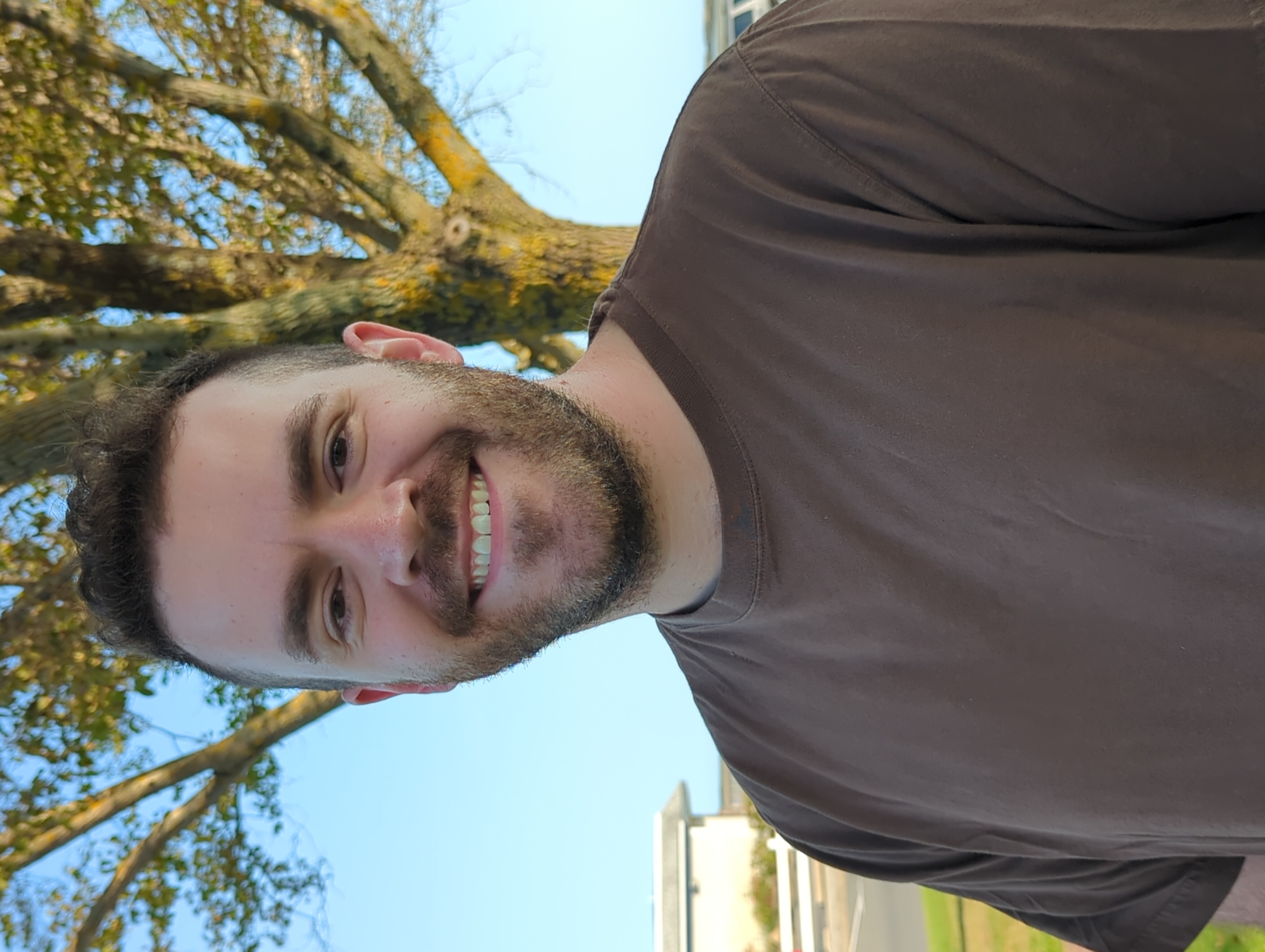
November 13, 2025
Ian Murphy is in the 5th year of his PhD program in biophysics at Brandeis University. Originally flip-flopping between biology and physics before finally landing on biophysics, Ian knows that choosing what you want to learn about is a journey. In his research, Ian makes very small shapes out of DNA that self-assemble into nanoscale 2D crystals. In this talk Ian will discuss how he got to grad school and some things he learned along the way, as well as the unexpectedly simple science behind what he does. Ian enjoys talking about his research but likes answering questions more!
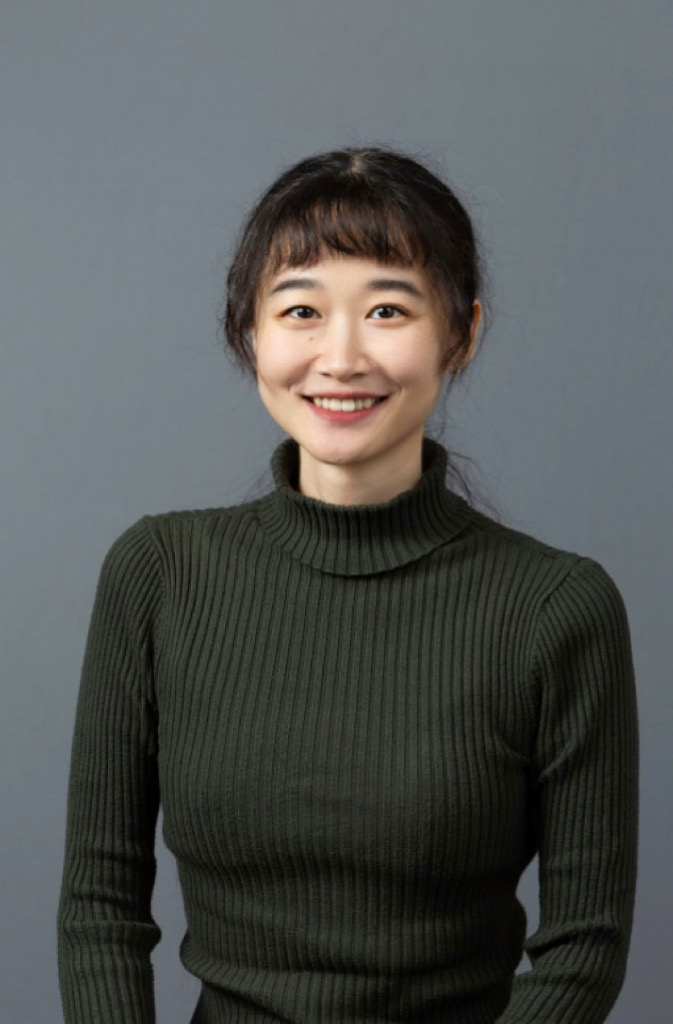
October 23, 2025
Jin Zhao is a PhD student in Computer Science at Brandeis University, where her research explores how language shapes the way people understand the world. Jin’s talk, “How Language Shapes the Way We See the World” shares her journey from growing up multilingual in China to teaching computers how to detect bias and perspective in news reporting, showing how curiosity about language can grow into a career at the intersection of linguistics and artificial intelligence.
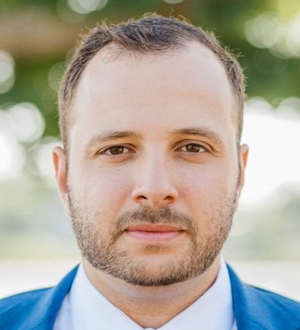
September 25, 2025
Joseph Magliozzi is a postdoctoral research fellow in the Goode Lab at Brandeis University. Originally from Massachusetts, Joseph e
arned his bachelor’s degree in Biological Sciences from Virginia Tech and his Ph.D. in Biochemistry and Cell Biology from Dartmouth College. His research focuses on how cells organize their interior to grow and divide. As a postdoctoral fellow in the Goode Lab, Joseph investigates the molecular mechanisms that underlie this process. He is passionate about training and mentoring the next generation of scientists to explore the vast world of cell biology.
Jin Zhao - Thurs. Oct 23
Ian Murphy - Thurs. Nov 13
Iris Nava - Tues. Dec 16
Diana Davis - Thurs. Jan 15
Anton Davydenko - Fri. Feb 13
Neerja Garikipati - Thurs. Mar 12
Chitrak Bhowmik - Thurs. Apr 16
Past Events
Brandeis and Waltham Middle Schools: Science Pizza Talks
Due to the success of the Waltham High School Pizza Talk series, the Brandeis MRSEC was invited to expand the series into the Waltham Middle Schools.
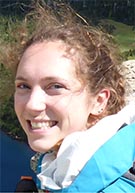
February 25, 2016
PhD candidate Chloe Greppi will share with you her journey to graduate school in the sciences. She will talk about how she changed her career goals many times over the course of middle/high school and college to ultimately pursue research. She will talk about her previous work in neurobiology and development, and her current work in mosquitoes and what YOU can do to get research experience and opportunities.
She is now a second-year doctoral student in the molecular and cellular biology program at Brandeis University. Prior to Brandeis, Chloe worked as a technician in the Stem Cell Department of Harvard University studying early brain development. As a student at Northeastern University, she had a chance to explore research in biotech companies and work on figuring out the 3D structure of molecules. Now, Chloe studies mosquitoes to understand how they sense their environment, and how that information helps them find hosts to bite. This is especially important for mosquitoes who spread diseases like malaria and yellow fever. In the future, Chloe hopes to become a high school biology teacher so she can get students excited about science.

December 8, 2015
PhD candidate Laura Laranjo will share with you the obstacles she overcame to get to where she is now. She will talk about the challenges she faced as an immigrant student — with no English background — and the fun experiences she had during her path into science. She will talk about her previous and current scientific research in DNA damage and how YOU can pursue research as a high school student or as an undergraduate student.
She is now a second year doctoral student in the molecular and cellular biology program at Brandeis University. Prior to Brandeis, Laura worked at Northeastern University creating a biosensor capable of measuring glucose levels in the perspiration system. At UMass Lowell, Laura analyzed lamprey brains and studied TAU protein, a protein associated with Alzheimer’s disease. In her current lab, Laura uses E.coli and yeast in her research to study how human mutations are avoided. Cancer, muscular dystrophy and bone-related diseases have been associated with one of the mutations she is investigating. Further down the road, Laura wants to become a college professor so she can keep motivating students to pursue science.
Brandeis Scientists in the Classroom Workshop
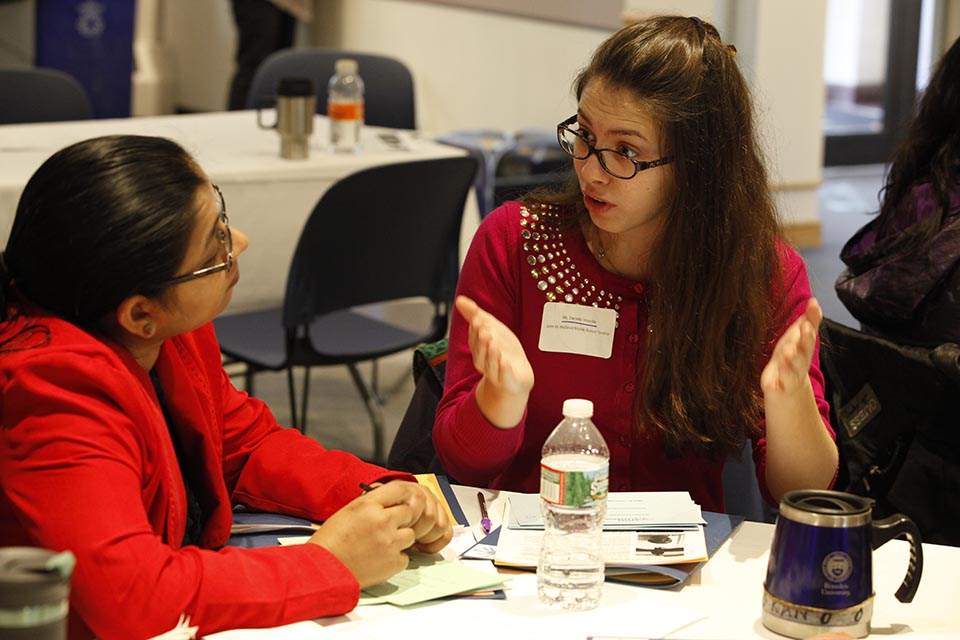
The Brandeis MRSEC is bringing the exciting world of materials research to Waltham Middle and High School students through our Brandeis Scientists in the Classroom Workshop. Science teachers from Waltham Middle and High Schools participate in a professional development workshop on incorporating visiting scientists into a classroom lesson. During the full-day workshop, teachers interact with scientists eager to come into their classroom.
Additional Programs
The Brandeis MRSEC welcomes middle and high school classes to campus for laboratory tours and hands-on science activities.
The Brandeis MRSEC is bringing the exciting world of materials research to Waltham Middle School students through a graduate professional development course for teachers called “Partnership for Curriculum Building.” This course is intended to bring MRSEC research into high school classrooms by partnering Brandeis researchers with local area high school science teachers. Together, the partnerships develop curriculum, present in the classrooms and prepare the material for broader distribution.
The Brandeis MRSEC co-developed a biochemistry course for Waltham High School students titled “In 3D Molecules of Life.” The developers of the course were Brandeis Biochemistry Professor Daniel Pomeranz Krummel, MRSEC Education Director Dr. Anique Olivier-Mason, undergraduate student and 3D printing expert Eduardo Beltrame, and graduate student and former high school physics teacher Vivekanand Pandey Vimal.
Course content and learning goals:
-
Atoms and interatomic forces
Goals: To describe bond properties and forces within a molecule and how molecules can interact. -
Nature's building blocks
Goals: To compare and contrast different biopolymers and explore the underlying principles that govern their structure and stability. -
DNA structure: H-bonding and base stacking
Goals: To describe hydrogen bonding and base stacking in the context of double-stranded DNA and understand the principles that govern its helical shape. -
DNA and intermolecular interactions
Goals: to describe how water and proteins can interact with double-stranded DNA and the underlying forces. -
Building in 3D
A core part of the course was the emphasis on visualization and models, which were 3D printed in the MakerLab.
Funding Sources: National Science Foundation and BioInspired Soft Materials MRSEC
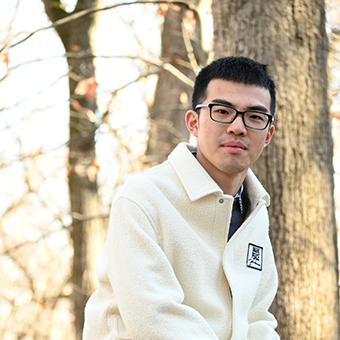
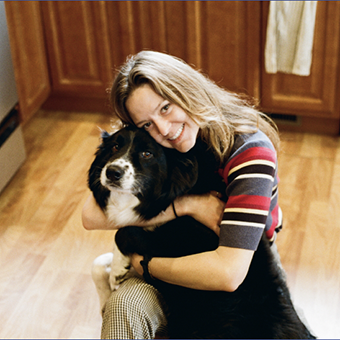
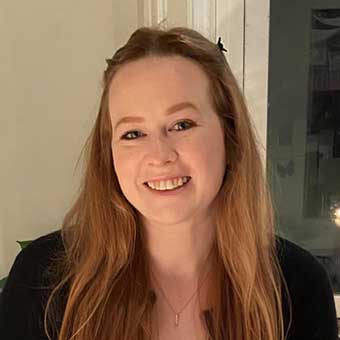
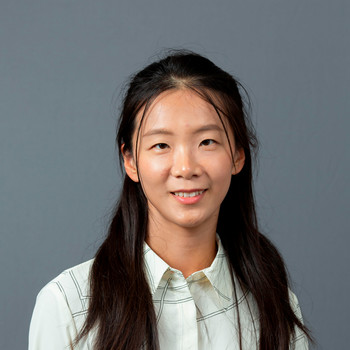
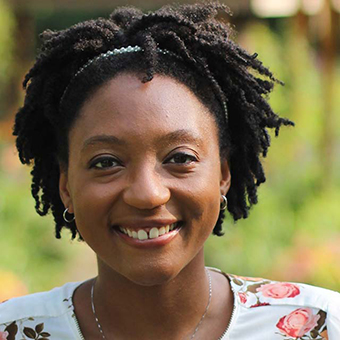
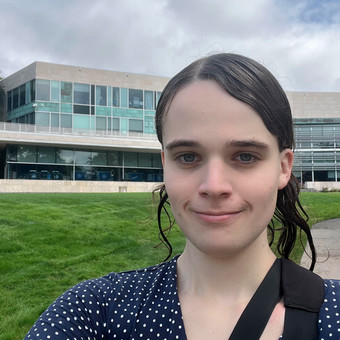
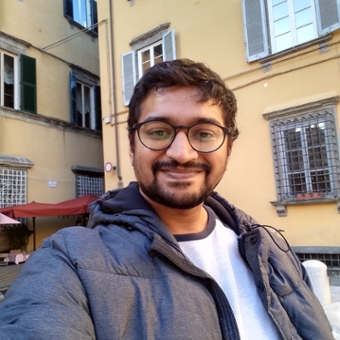
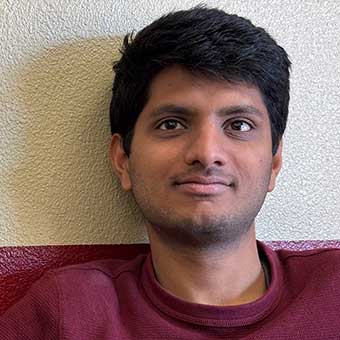 Saaransh Singhal
Saaransh Singhal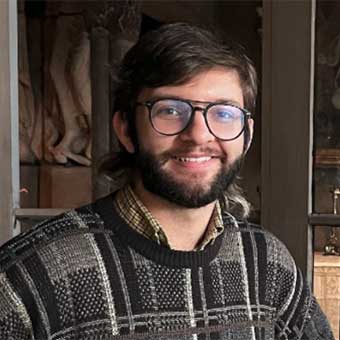
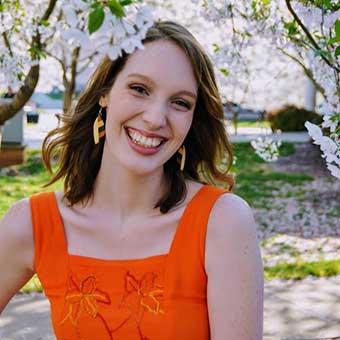
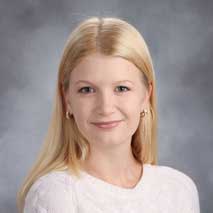
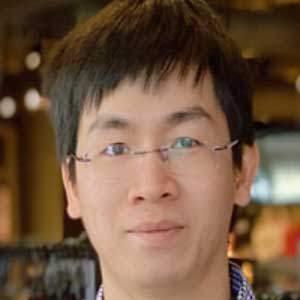
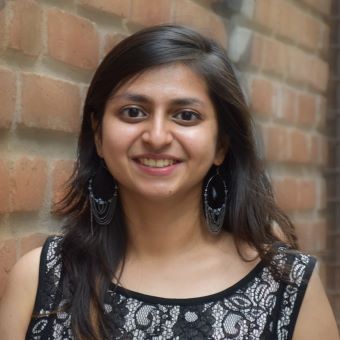
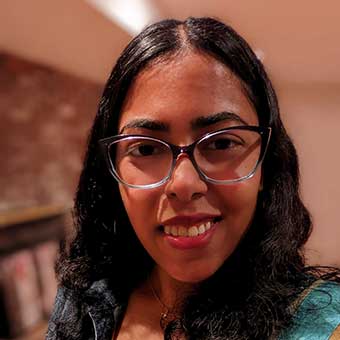
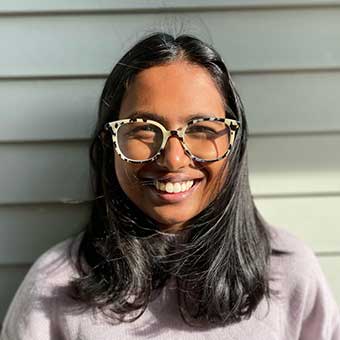
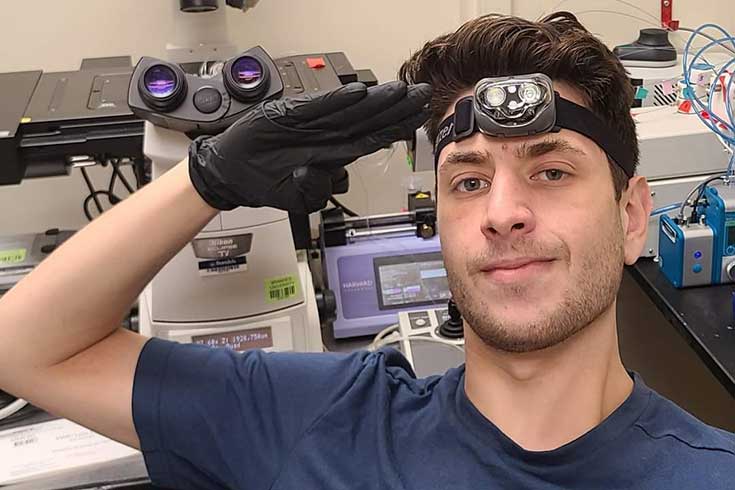
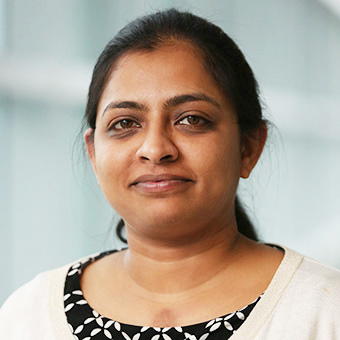
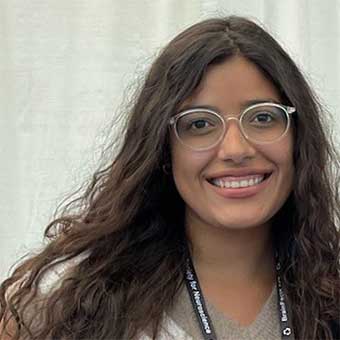
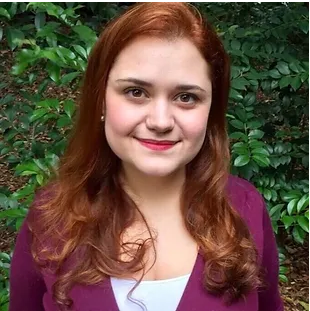
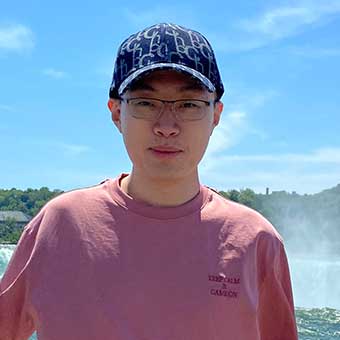
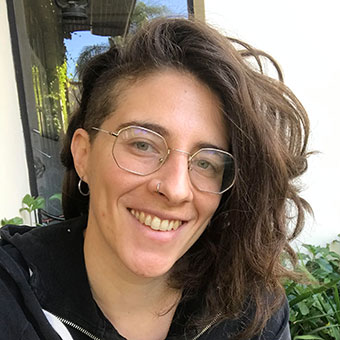
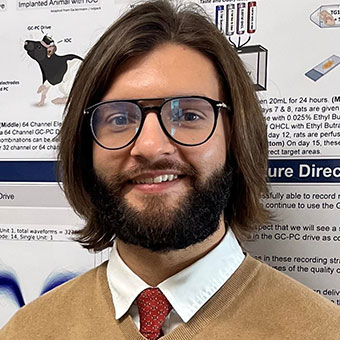 Thomas Gray
Thomas Gray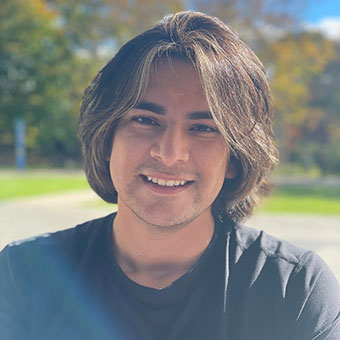
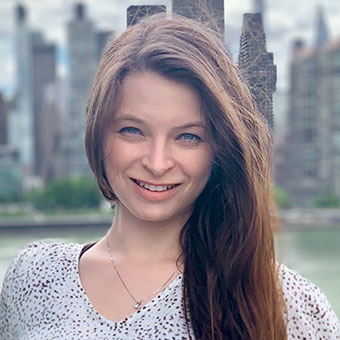
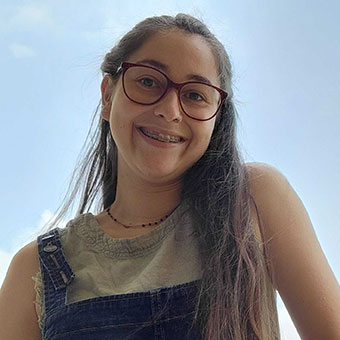
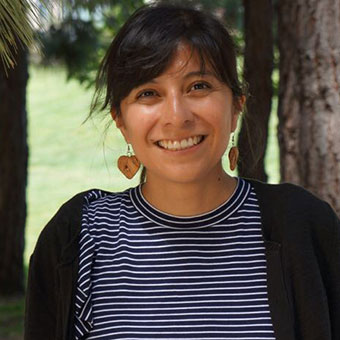
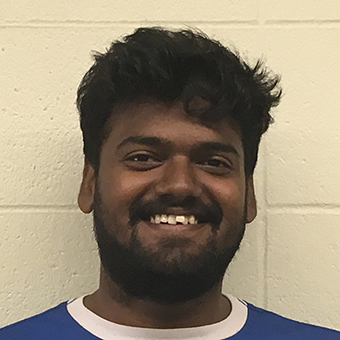
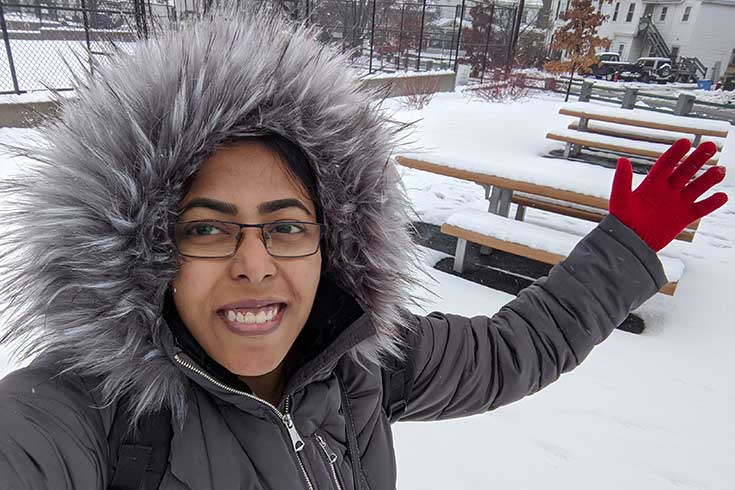
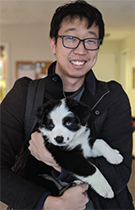
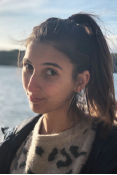
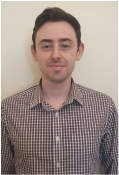


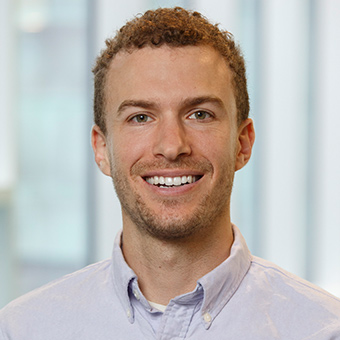
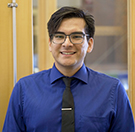 Víctor Manuel Suárez, PhD student at Brandeis University
Víctor Manuel Suárez, PhD student at Brandeis University
